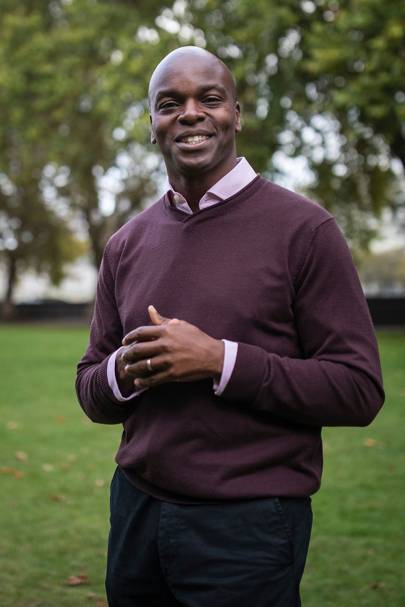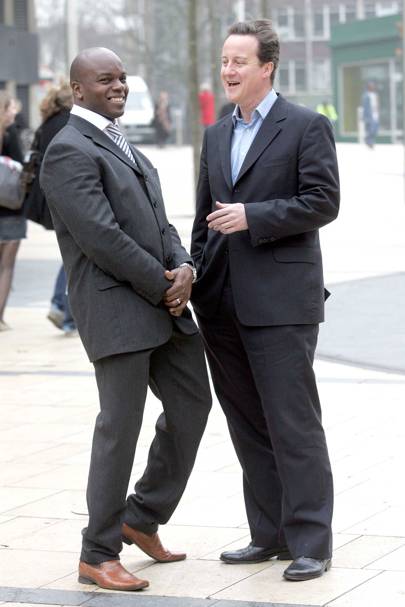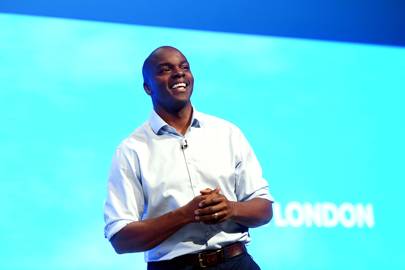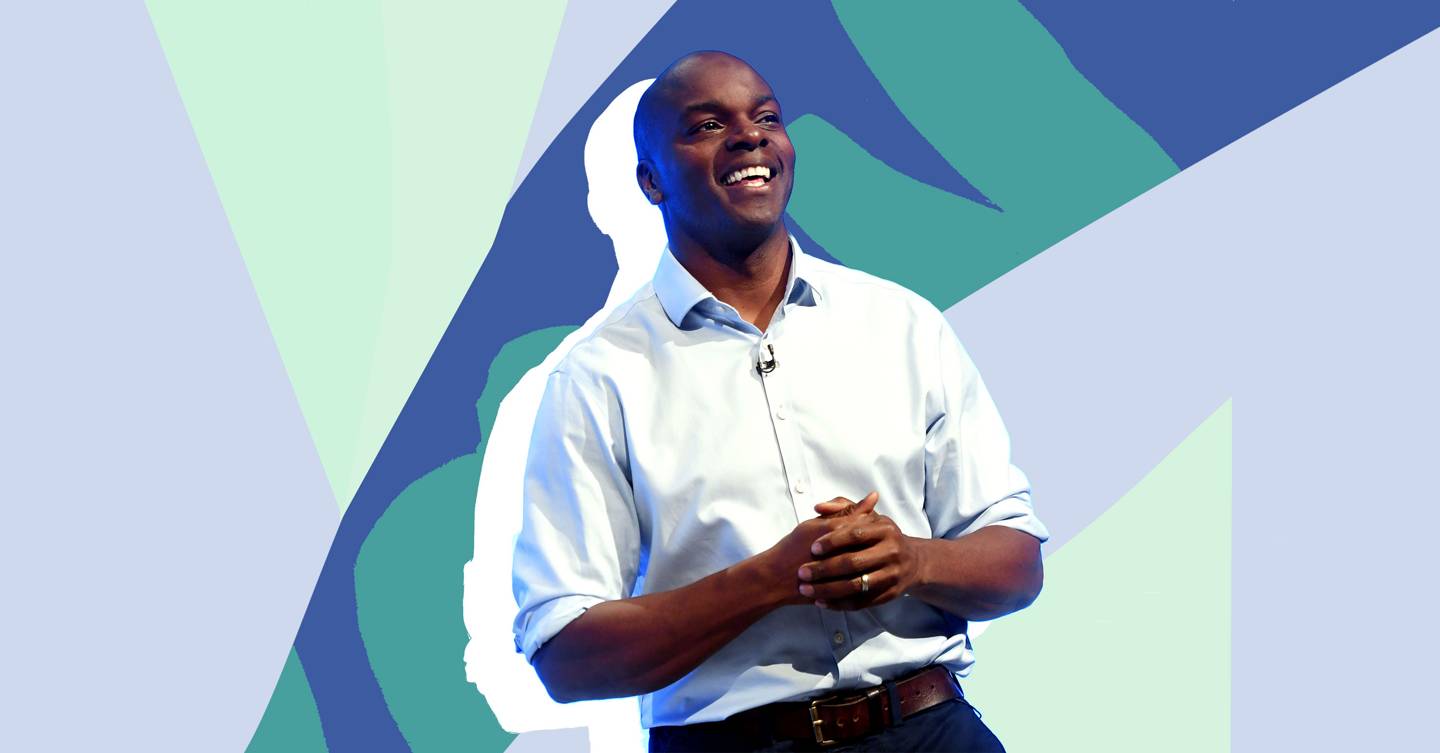Shaun Bailey, the Conservative Party candidate for London mayor, may be trailing 20 points behind Labour’s Sadiq Khan in his bid to be elected on Thursday 6 May. It’s even been reported that his failure is such a foregone conclusion, Tory MPs have been advised not to campaign for Bailey and that there have been moves to deselect him in the past 10 months. If this is the case, and with unlikely candidates – including actor Laurence Fox and US podcaster Brian Rose also running – it seems that Sadiq is heading for a landslide win. And yet, Bailey’s not taking it lying down.
We meet on Zoom (where else?), where he’s charismatic, energetic and easy to chat to, although unrehearsed and off the cuff, compared to Sadiq, whom I also interviewed recently. Bailey’s campaign has been problematic from the start, both in that he’s been unclear in his messaging and also in his refusal to apologise for some of the inappropriate comments he’s made in the past. These range from victim-blaming girls regarding domestic violence (when he said “repair should start with the girls… if you can get the girls to accept less of men’s rubbish then men would have to change”) to his suggestion that teenage mothers pushed people who “do the right thing” down the housing ladder, and claiming that homeless Londoners could save up to a £5k deposit for a mortgage.

Shutterstock
Bailey, now 50, was born in North Kensington to a British Jamaican family. As a young man he gained a degree in computer-aided engineering, and spent some years unemployed and homeless. He’s admitted to committing burglary in his youth, and drawing on his own experiences is now big on tackling knife culture. In 2006 he co-founded the charity MyGeneration to help young people, but it closed due to financial problems in 2012. He’d already caught the eye of David Cameron and became his special adviser on youth and crime from 2010 to 2013. He stood unsuccessfully as Conservative parliamentary candidate for Hammersmith in 2010 and Lewisham West and Penge in 2017. He is married to Ellie and has two children.
Taking all of this into account, why does he think he can do better as mayor? “London needs a fresh start. We’ve been moving in the wrong direction for four and a half years now. I wanted to be part of the response to that. My life, I’d like to believe, has been characterised by representing people, getting involved, stepping out, putting my head above the parapet. We’ve had major challenges in London around crime, around housing, around transport, around a green agenda, all those things have been major. And although we have lots of advantages as London, we’re not using them correctly, in my opinion. I think we could do more.”

Shutterstock
His main passion, it seems, is tackling crime, having been a former youth worker himself for many years. We speak a couple of weeks after Sarah Everard’s murder so I’m interested in how he’s going to make women feel safe on the streets of London. One of his big promises is 8,000 more police officers on the streets. I tell him it’s all very well bringing on more police, but how will he address the systemic misogyny within the force, and the ways in which women are mistreated by the justice system, as so often, women aren’t believed.
“But when I talk about 8,000 police officers,” he continues, “the most progressive part of that is, how do we recruit people who are not the usual suspects? Which is effectively men. And when you come at it from a Black community angle, you then realise, the police have to go to different places. Where are women who could potentially be interested in the police force? Do you currently go and recruit in those places? And the answer is probably ‘no’. So let’s change that.
“How many senior police officers are women? When people are planning a police operation, where’s the voice of women in that planning?”
I point out that a woman – Dame Cressida Dick – is currently leading the Met police, and that hasn’t helped women to feel any safer.
“You’re completely right,” Bailey replies. “But what that woman leading the police service needs is more and more women to be speaking to within the force. Because you can put one person in, and they could be the most senior person, that doesn’t drive culture change. Culture change is about being around people. Obviously, as a Black man in London, you can imagine the relationships with the police… If you looked at the Stephen Lawrence case, I remember saying to a local police officer: “I wonder how many of those police officers had any relationship with a Black person. It might have changed the whole way they look at it.”
One of Bailey’s pledges is for a CCTV rollout on public transport to help protect women. But again, there’s an issue that a lot of the women I’ve spoken to, even when they go and report crime on the Tube, it’s not taken seriously by staff. Women are kicked off buses at night and left stranded for not having enough money. There’s not that understanding of the situation that women are finding themselves in, even when it’s seen or reported.
“Yeah,” he says. “So if you look at the time and energy that’s being put into unconscious bias training, we could and should put the same level of effort into protecting women, understanding the angle they come from.
“I used to run a charity, I’ve been a youth worker for 20-odd years, and I remember when a girl came to me and said, ‘Right, we’re going to start a girls’ group.’ Now, what was interesting, they never asked permission. They told me they were going to start a girls’ group. And of course, you’re this big man, a 13-year-old girl bursts into your office and tells you what’s going to happen, and I remember thinking to myself, ‘OK.’ But that was an educational piece for me, and we’re talking 20, 25-odd years ago. I sat in that group and heard so many different stories about people just not understanding what the pressure is to be a woman. And obviously, as a man, you’re walking through the universe, you don’t know.”
I ask what he thinks about the Conservative Party’s failings in their portrayal of women, thinking specifically of the Government’s recent sexist ad campaign asking people to stay at home during the pandemic, which featured illustrations of women ironing and looking after children.

Shutterstock
“Before this interview someone talked to me about this and said, ‘What are you going to say about Conservatives and women’s rights?’ I said, ‘Hold on, let’s look at Labour.’ If you go back to the union movement, all through the ’70s, they ran a massive campaign to keep women at home. Their motto was, ‘Pay men more so women can stay at home.’ It was a massive campaign, and nobody talks about it.” His comment doesn’t seem to grasp the irony that these views of women do belong in the ’70s.
Likewise, the Conservative Party hasn’t historically been a natural fit for the Black community – does Bailey feel any tension being a Black man and representing a party that has been historically considered anti-immigration?
“I can’t tell you how many times I get asked this. I don’t want to deny the history, I’m not a lunatic. There is history there that needs to be overcome. People talk to me about ‘Rivers of Blood’ speeches. And I’ll say to them, ‘So let’s look at Enoch Powell, for instance, he made that speech in 1968 and he was sacked. I’m not telling you the Conservatives have been perfect around race, because they haven’t. But the point is, Labour haven’t been made to pay for [their past] in the same way.”
“I feel that my role is to put my head above the parapet and show Black people we can be anywhere we like, simple as that. I always ask people, ‘Show me where our fortunes changed by giving all of our political power to the Labour Party?’ Because it’s just never happened. The bottom line is this, if you’re on the right, because we are associating with people who are successful, you are held to a higher standard. And I see that, that’s right. You want to make sure that you don’t only focus on those who are socially powerful. I get that. But what it’s meant is, a lot of Labour and left-wingers, let me use that term, have been able to get away with things and not be scrutinised in the same way.”
“[Jeremy] Corbyn once said only Labour could release the talent in the Black community. I remember my mum saying, ‘Well, what the hell does he think I’ve been doing for the last 70 years?’ [Labour] have cast us as victims, and they’ve often tried to make us militant.
Has Bailey personally experienced systemic racism or classism within the Conservatives, I ask?
“I cannot express to you how desperate people [in the party] are to help me. There were 61 people who ran to be the Conservative mayoral candidate. Probably six of them were Black, but the winner was Black. And make no mistake, I wasn’t chosen by the party, I was chosen by the members, they had a choice. In the final were three of us, and I was the only Black person, and here I am. Black people want to be mainstream, which means being everywhere on the political spectrum, not just in one corner.”
With that, our interesting – if somewhat chaotic – conversation comes to an end. I leave our meeting liking Shaun Bailey, but not quite convinced by what he has to say, and I’m not too concerned for Sadiq’s chances. I ask him for a photo. He obliges and grabs a ring light to ensure the most flattering image – but not before adding:
“You know, Deborah, my proudest thing about being a Londoner? I’ve gone from being homeless and unemployed to the Conservative candidate for Mayor of London. That is a very long and tortuous journey. But I’m proud that it can happen in London.”
